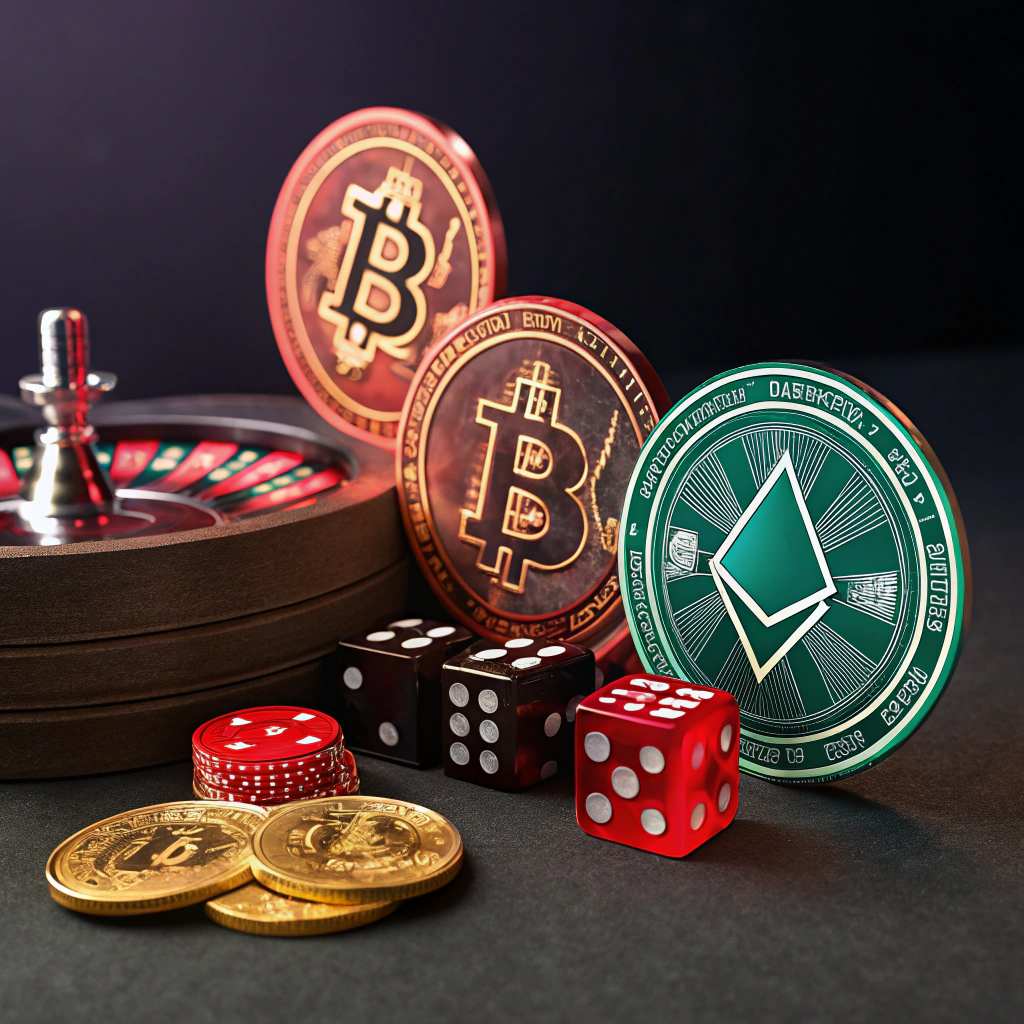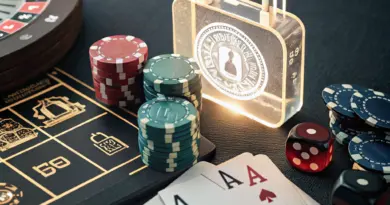The Psychology Behind Gambling: Why We Take Risks
The flashing lights of a casino, the anticipation as the roulette wheel spins, the rush when your cards reveal a winning hand—gambling creates a unique cocktail of emotions that humans have found irresistible for millennia. But what exactly happens in our brains when we place a bet? Why do some people walk away after a small win while others continue until they’ve lost everything? The psychology of gambling offers fascinating insights into human behavior, risk assessment, and the powerful neurological forces that drive our decisions.
The Neuroscience of the Gambling Experience
The Brain’s Reward System
At the core of gambling’s appeal lies the brain’s reward system—a complex network of neural circuits that evolved to motivate behaviors essential for survival. When we gamble, this ancient system springs into action, regardless of whether we’re playing poker in Las Vegas or buying a lottery ticket at the local convenience store.
The key player in this neurological drama is dopamine, often called the “feel-good” neurotransmitter. Research has shown that uncertainty—a fundamental aspect of gambling—actually amplifies dopamine release. Interestingly, this chemical surge happens not just when we win but during the anticipation phase as well.
- The brain releases more dopamine during near-misses than total losses
- Unpredictable rewards (variable ratio reinforcement) create stronger responses than predictable ones
- The dopamine system can become desensitized in regular gamblers, requiring bigger risks for the same “high”
The Arousal Response
Beyond dopamine, gambling triggers a broader physiological arousal response. Heart rates increase, palms sweat, and breathing quickens—similar to what happens during other exciting activities. For many gamblers, this physiological arousal becomes part of the appeal.
“The human brain registers a near-miss as a ‘almost won’ rather than a ‘definitely lost,’ creating a powerful incentive to continue playing,” explains Dr. Luke Clark, Director of the Centre for Gambling Research at the University of British Columbia.
Cognitive Biases and Gambling Behavior
The Gambler’s Fallacy
One of the most persistent cognitive biases affecting gambling decisions is the Gambler’s Fallacy—the mistaken belief that if something happens more frequently than normal during a given period, it will happen less frequently in the future (or vice versa).
For instance, if a roulette wheel has landed on black several times in a row, players often believe red is “due” to appear next. This thinking persists despite the fact that each spin is an independent event with no memory of previous outcomes.
Illusion of Control
Humans naturally dislike feeling powerless. Gambling offers an illusion of control that soothes this discomfort. This explains why:
- Lottery players prefer to choose their own numbers rather than receive random ones
- Craps players throw dice harder when aiming for higher numbers
- Slot machine users may develop rituals they believe influence outcomes
Confirmation Bias
We tend to remember our wins more vividly than our losses—a perfect example of confirmation bias in action. A gambler might recall hitting a jackpot months ago while forgetting dozens of subsequent losses, reinforcing the belief that gambling is potentially profitable.
Risk Factors for Problem Gambling
Not everyone who enjoys occasional gambling develops problematic behaviors. Research has identified several factors that increase vulnerability:
| Risk Factor | Significance | Prevalence |
|---|---|---|
| Family history of addiction | 3-8x increased risk | ~40% of problem gamblers |
| Early big win | Creates unrealistic expectations | ~50% of problem gamblers report early wins |
| Mental health conditions | Depression, anxiety, ADHD increase risk | ~60% comorbidity rate |
| Impulsivity traits | Difficulty with delayed gratification | ~35% higher in problem gamblers |
| Access to gambling | Proximity to venues increases risk | 2x risk within 10 miles of casino |
Genetic Predispositions
Twin studies suggest that genetic factors account for approximately 50-60% of the vulnerability to developing gambling problems. These genetic influences likely affect impulse control systems and dopamine receptor sensitivity.
Environmental Triggers
Environmental factors interact with personal vulnerabilities to shape gambling behavior:
- Financial pressure can drive hope-based gambling
- Social isolation may lead to gambling as a form of escape
- Cultural attitudes toward gambling normalize the behavior
- Advertising and marketing create positive associations with gambling
The Spectrum of Gambling Motivations
Entertainment and Social Gambling
For many people, gambling represents a form of entertainment with a predetermined budget—similar to spending money on a concert or dining out. Social gamblers enjoy the activity primarily for its entertainment value and the social interactions it facilitates.
Escape Gambling
Some individuals turn to gambling as a means of escaping negative emotions or situations. The focused attention required by gambling activities provides temporary relief from anxiety, depression, or boredom.
“For escape gamblers, the goal isn’t necessarily to win money—it’s to enter an almost meditative state where everyday problems temporarily disappear.” — Dr. Henrietta Bowden-Jones, Director of the National Problem Gambling Clinic
Action Gambling
Action gamblers are drawn to the excitement and arousal that gambling provides. These individuals often prefer skill-based games like poker or sports betting, where they can exercise strategy and compete against others.
Modern Gambling: Technology and Accessibility
The Digital Revolution in Gambling
The internet has transformed gambling from a destination activity to one available 24/7 from the comfort of home. Mobile gambling apps further remove barriers, allowing people to place bets with a few taps on their smartphones.
This increased accessibility creates new psychological challenges:
- Removal of natural breaks that would otherwise allow reconsideration
- Decreased awareness of money spent when using digital currencies
- Blurring of boundaries between gaming and gambling (loot boxes, etc.)
- Algorithmic personalization that can target vulnerable individuals
The Gamification of Gambling
Modern gambling platforms increasingly incorporate elements from video games:
- Achievement systems and progress bars
- Social comparison and competition features
- Visual and audio rewards for near-misses
- Character development and narratives
These features leverage the same psychological hooks that make video games compelling, potentially increasing the addictive potential of gambling activities.
Responsible Gambling and Harm Reduction
Understanding the psychology behind gambling allows for more effective harm reduction strategies. Evidence-based approaches include:
- Pre-commitment tools that allow players to set time and money limits before beginning
- Reality checks that interrupt play to display time elapsed and money spent
- Self-exclusion programs that enable individuals to ban themselves from gambling venues
- Education about odds and probabilities to counter common misconceptions
- Cognitive-behavioral therapy to address problematic thinking patterns
The Role of Mindfulness
Emerging research suggests that mindfulness practices may help gamblers develop greater awareness of their motivations and impulses. By creating space between urge and action, mindfulness can support healthier decision-making around gambling activities.

Conclusion
The psychology of gambling reveals much about human nature—our optimism, our susceptibility to cognitive biases, and our complex relationship with risk and reward. For most people, gambling represents an occasional entertainment choice with manageable consequences. For others, the powerful neurological and psychological hooks can lead to problematic behavior.
By understanding the mechanisms that make gambling so compelling, we can approach these activities with greater awareness and develop more effective strategies for keeping gambling enjoyable rather than harmful. Whether you’re an occasional lottery player or a regular casino visitor, knowledge of gambling psychology empowers you to make more conscious choices about when, how, and why you choose to take risks.



